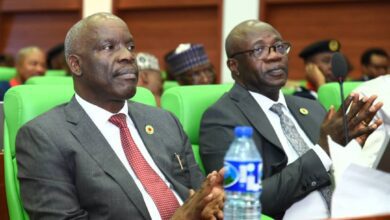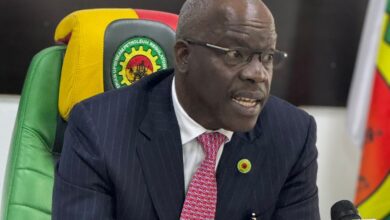With 37.50Bn Oil Reserves, Should Nigeria Abandon Fossil Fuels?

By Sunday Etuka, Abuja
Nigeria recently grew its oil and condensate reserves to 37.50 Billion Barrels, amid the growing calls from the West for the country to abandon its fossil fuels for Renewable Energy.
According to the report released by the Nigerian Upstream Petroleum Regulatory Commission (NUPRC), in April 2024, the country grew oil reserves from 36.96 Billion Barrels recorded in January 1, 2023 to 37.50 Billion Barrels in January 1, 2024.
It also grew its associated and non-associated gas reserves to 209.26 Trillion Cubic Feet (TCF) within the same period.
Furthermore, the report disclosed that the Reserves Life Index is 68.01 Years and 97.99 Years for the Oil and Gas respectively.
This clearly means that the country will continue to enjoy its oil reserves for the next 68.01 years, and gas reserves for the next 97.99 years.
With the above figures, Nigeria undoubtedly is and will continue to be among the richest countries in Africa, and the world at large.
The big question, however, is whether the country should abandon these abundant natural resources in pursuit of the Western imposed Agenda of energy transition or climate change.
Available data shows that Nigeria does not produce nearly as much greenhouse gas pollution as the United States and China.
Data shows that the country produces the 3rd highest amount of greenhouse gas in Africa, behind South Africa and Zambia.
In 2016, Nigeria was producing just 0.97% of the total greenhouse gas emissions in the world. This figure, however, has changed recently.
At the Nigeria International Energy Summit in Abuja in February 2024, the Minister of State for Petroleum Resources, Senator Heineken Lokpobiri declared that the country will not stop the exploration of fossil fuels despite the push by the West.
He argued that after using the fossil fuels by some countries in Europe and America to develop, they are mountain pressure on Africa to discontinue further investments in exploration of crude oil on the continent.
Lokpobiri said, “I was in Davos in January and I was privileged to participate in several panels and everybody was talking about the abandonment of fossil fuels, and that people should not invest in fossil fuels. And I ask one American diplomat by saying look, why don’t you start with America?
“America is the highest producer of oil, they are ramping up production but they are asking us to stop. Remember that last year, the United Kingdom, under the present prime minister, gave about 100 licences for oil exploration.
“This means that the West is not slowing down in exploration, but we are being asked to slow down or stop investments in fossil fuel. I’ve always told them that we are not the problem, we are the victims and we will transit at our own pace”, he stressed.
Prior to this, Nigeria had maintained a rigid stand on the call to phase-out fossil at COP28 held in Dubai, United Arab Emirate in December, 2023.
The country was quick to remind the world that the call for a phase-out of fossil fuels was not in line with its position, and that was visibly reflected in the final submission at the Conference.
Meanwhile, the Secretary-General, African Petroleum Producers’ Organisation (APPO), Dr. Omar Farouk while collaborating the above positions noted that the biggest victims of a speedy energy transition shall be the developing countries, especially those from Africa.
He submitted that should the anticipated technological breakthroughs in the energy research and development fail to materialise by the time they are expected to be fully deployed, and at the same time the oil and gas industry has been abandoned, leading to a shortage in global energy supplies, the little energy that is available shall be cornered by the rich countries.
Dr. Farouk stated that a major study conducted by the organisation a couple of years ago on the Future of the Oil and Gas Industry in the Light of the Energy Transition, identified three imminent challenges that the energy posed to the African oil and gas industry.
“These are funding, technology/expertise and markets. The study noted that in the nearly 100 years that Africa has been producing oil and gas, our countries have been heavily dependent on foreign funding, foreign technology and to some extent expertise and foreign markets.
“The study further noted that while the world is committed to a speedy energy transition, Africa owes its people a duty to utilise its abundant oil and gas resources to provide them energy, which is the most potent catalyst for socio-economic development. In other words, Africa must create a future for the oil and gas industry,” Farouk stated.
However, while speaking during a session yesterday at the 26th World Energy Congress (WEC2024), Senator Lokpobiri said, the Nigeria’s position on energy transition, and indeed Africa as a whole, is with an emphasis on addressing energy poverty in the continent through concerted efforts with investment in fossil fuels.
“…These deliberations underscore our commitment to steering the energy sector towards a more sustainable and just future. We need all the support we can get for more investment in our fossil fuel exploration in order to guarantee energy security and finance energy transition”, he reiterated.






